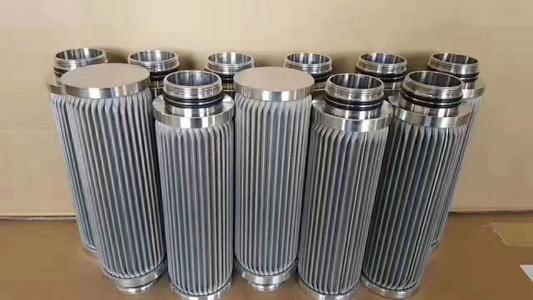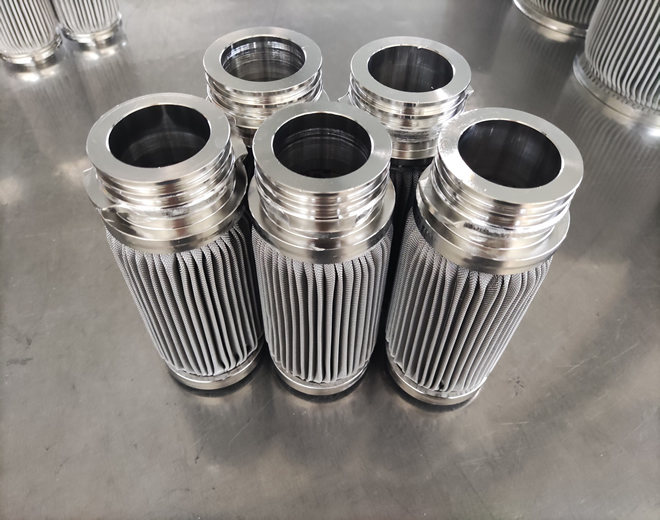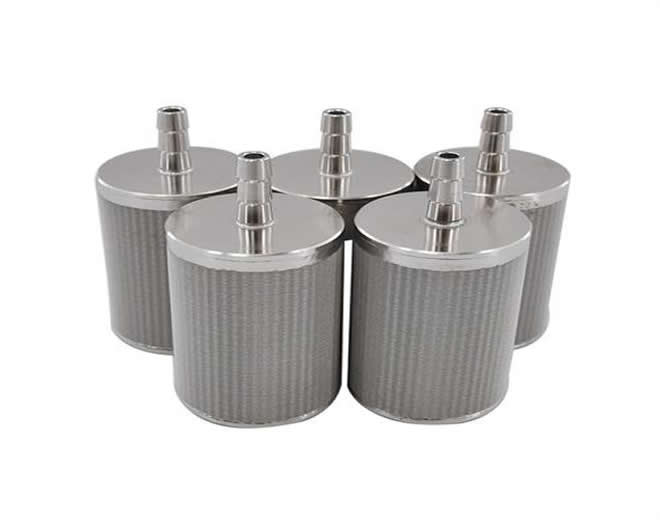Stainless steel filter elements play a crucial role in the electronics industry, primarily used for filtering ultrapure water required in the production of electronic components to ensure product quality. Due to their excellent corrosion resistance, high-temperature tolerance, mechanical strength, and ease of cleaning, stainless steel filter elements are widely used at various stages of electronics production lines.
Application Locations in Production Lines
1. Raw Water Pre-Treatment : Used to filter tap water or other raw water sources, removing large particles and suspended solids.
- Filtration Requirements : Remove sand, rust, and other large particles to protect downstream treatment equipment and extend its lifespan.
2. Primary Filtration : Used to initially remove smaller particles from the raw water.
- Filtration Requirements : Filtration precision typically ranges from 5 microns to 10 microns to ensure preliminary water purification.
3. Fine Filtration : Used to further remove fine particles and suspended solids from the water.
- Filtration Requirements : Filtration precision typically ranges from 1 micron to 5 microns to enhance water purity.
4. Final Filtration : Used for the final filtration in ultrapure water systems to ensure the water meets ultrapure standards.
- Filtration Requirements : Filtration precision typically ranges from 0.1 micron to 1 micron to remove bacteria, microorganisms, and other fine impurities, ensuring the quality of ultrapure water.
5. RO System Protection : Used to protect reverse osmosis membranes and extend their lifespan.
- Filtration Requirements : Remove particles that could clog the RO membranes, ensuring the efficient operation of the RO system.
6. Reclaimed Water Treatment : Used to treat reclaimed water from the electronics production process, ensuring it can be reused.
- Filtration Requirements : Remove particles and impurities generated during production to improve the quality of reclaimed water.
Filtration Requirements
1. High Filtration Precision : The electronics industry requires extremely high water quality, with filtration precision typically ranging from 0.1 microns to 5 microns to ensure the removal of various impurities and microorganisms from the water.
2. Corrosion Resistance : Filters must withstand chemical substances in the water, especially acidic and alkaline substances.
3. High-Temperature Tolerance : Filters should maintain stable performance under high-temperature conditions, adapting to the possible high-temperature environments in electronics production.
4. Mechanical Strength : Filters must withstand high pressure and mechanical stress, especially under high-flow and high-pressure operating conditions.
5. Ease of Cleaning and Regeneration : Filters should be easy to clean and regenerate to maintain efficiency and reduce downtime.
6. Non-Shedding : Filter materials must be stable and should not release any particles or chemicals during the filtration process, contaminating the ultrapure water.
7. Flow and Pressure Requirements : Filters should be designed to meet the specific flow and pressure conditions of the production line to ensure continuous and efficient production.
In conclusion, stainless steel filter elements are essential in the electronics industry. Through efficient filtration and purification, they ensure the quality of ultrapure water used in the production process, enhancing the quality and production efficiency of electronic products.



